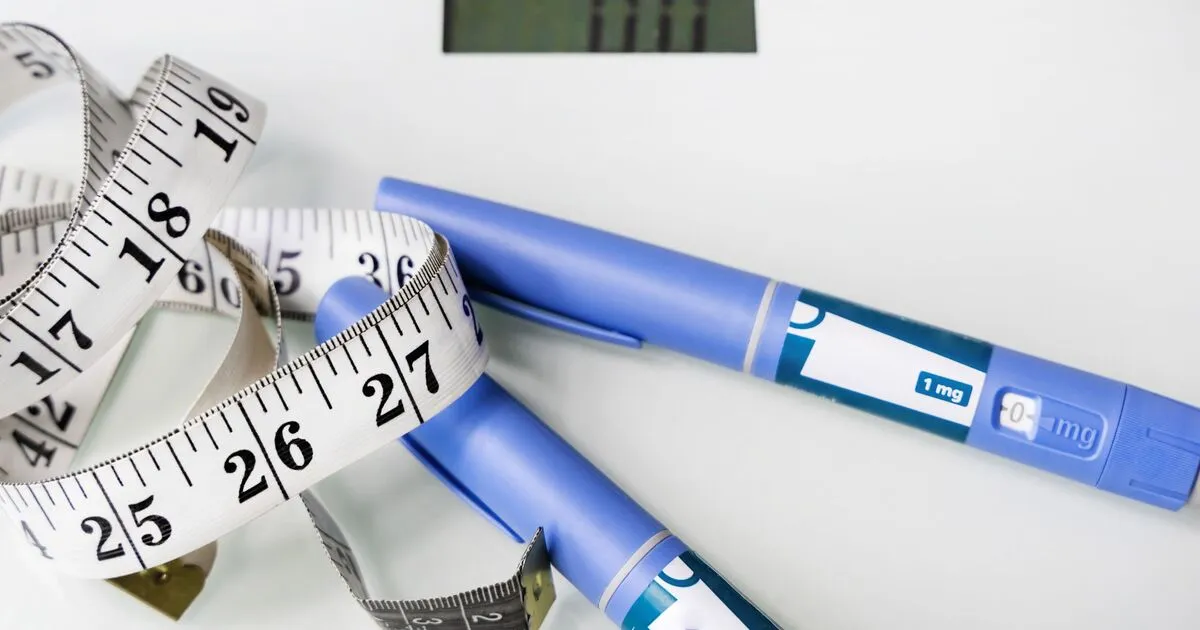More than 200 healthcare professionals have written to the Health Secretary demanding an urgent review of obesity services as they face “unprecedented public demand” for weight loss jabs. The Government has announced plans to harness the revolutionary drugs’ power to boost the economy by getting unemployed people back to work. ...READ THE FULL STORY FROM SOURCE ...READ THE FULL STORY FROM SOURCE
A major trial of new treatment tirzepatide – dubbed the “King Kong” of weight loss jabs – will evaluate its impact on economic outcomes as well as direct health effects.
But members of the Obesity Health Alliance (OHA) warned that the expanding use of anti-obesity drugs is placing “immense pressure” on already overstretched services.
Alfie Slade, the alliance’s government affairs lead, said: “The new weight loss drugs represent a breakthrough in treatment, giving hope to the millions of people struggling to manage their weight, but they also expose the weaknesses in our current obesity services.
READ MORE: Andrea Jenkyns opens up on personal hell using Ozempic
“Without urgent government intervention, we will fail to meet the needs of millions of patients, leading to greater health inequalities.”
Around 4.1 million people meet the eligibility criteria for treatment with weight loss drug Wegovy, but NHS projections suggest fewer than 50,000 people will receive it annually by 2028, the OHA said.
The NHS is also drawing up plans to roll out tirzepatide to a quarter of a million within three years, and up to 1.6 million within 12 years.
The OHA represents 60 health charities and medical royal colleges. NHS clinician Dr Sarah Williams, said healthcare staff were seeing “a tidal wave of unprecedented demand that we simply cannot meet with the resources currently available”.
She added: “The government needs to act now to make obesity services more equitable and sustainable. Clinicians are in a difficult position, having to ration life-changing treatments due to overwhelming demand.”
Colette Marshall, chief executive of Diabetes UK, said: “Weight management support that is both properly funded and accessible would make a massive difference to the long-term health of people at risk of, and living with, type 2 diabetes.
“Many people with diabetes tell us there’s not enough support and they are often shamed and disrespected when trying to access what is available. This report clearly spells out what the Government and healthcare system should do.”
The intervention comes after a study found patients were being denied access to weight loss services including bariatric surgery and jabs.
A report in the British Medical Journal found patients in almost half of England do not have access to comprehensive support through weight management services.
Freedom of Information requests sent to all 42 of the country’s integrated care boards found only 24 commissioned both tier three and four adult weight loss services covering their entire population and were accepting new referrals.
These tiers are responsible for providing weight loss drugs, such as semaglutide injections, and bariatric surgery.
A Department of Health and Social Care spokesperson said: “Obesity is one of the biggest preventable killers. It costs the NHS more than £11 billion a year and it also places a significant burden on our economy.
“With obesity-related illness causing people to take more days off sick, obesity drugs can be part of the solution. By tackling obesity, we can ease demands on our NHS and help improve Britain’s productivity.
“As well as backing the next generation of medicines, this government is also taking action to prevent ill health in the first place and help people live well for longer. “We’re tackling the obesity crisis head-on – restricting junk food advertising on TV and online, along with banning the sale of high-caffeine energy drinks to children under the age of 16.”…For More READ THE FULL STORY ▶▶



